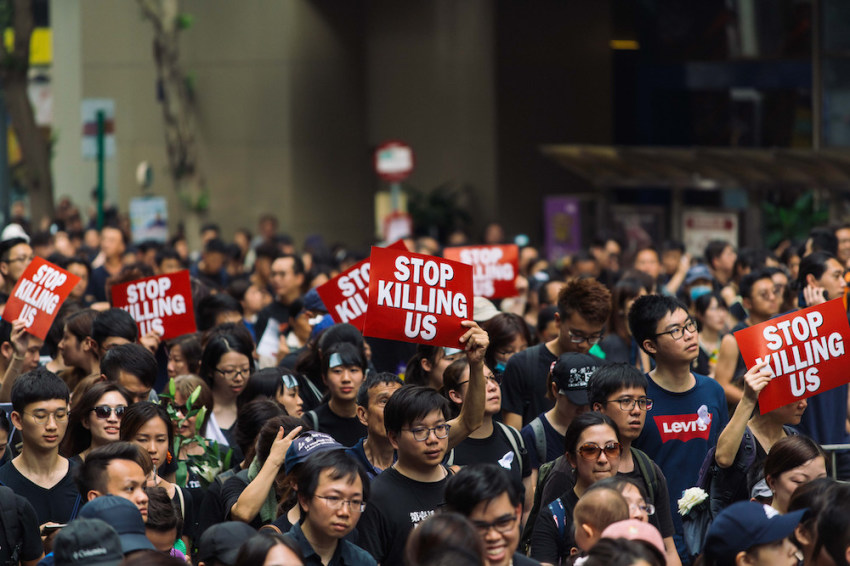‘Uncertain and unsettling’: China approves controversial Hong Kong security law

The People’s Republic of China has approved a new national security law for Hong Kong, igniting greater concerns about human rights in the semi-autonomous region.
Chinese President Xi Jinping signed the measure into law, set to take effect on Tuesday, which was aimed at cracking down on terrorist and subversive actions in the administrative region.
Tam Yiu-Chung, the representative for Hong Kong on the National People's Congress Standing Committee, expressed optimism over the newly signed law.
“We hope the law will serve as a deterrent to prevent people from stirring up trouble,” stated Tam, as reported by the Associated Press. “Don’t let Hong Kong be used as a tool to split the country.”
However, many human rights groups have opposed the law, arguing that it undermines the semi-autonomous status of Hong Kong, first created in 1997, and curbs civil liberties.
Joshua Rosenzweig, head of Amnesty International’s China Team, released a statement in advance of the law being passed, arguing that the measures were troublesome.
“Hong Kong stands at the cliff-edge of an uncertain and unsettling future, its freedoms threatened by national security legislation that could override the laws currently protecting the city’s inhabitants from the worst excesses of state-sponsored repression,” he stated.
“The Chinese government must abandon plans to pass a national security law for Hong Kong unless it can provide water-tight guarantees that the legislation conforms with human rights in all aspects.”
Stephen McDonell, China correspondent for the British Broadcasting Corporation, wrote an analysis of the new law in which he labeled it “a frighteningly open-ended tool to suppress political agitation.”
“Like similar laws on the Chinese mainland it appears that it can be manipulated to meet the needs of the Communist Party as required to crush almost any action deemed threatening,” argued McDonell.
The new law comes following several months of large-scale protests on the part of Hong Kong residents in response to efforts by Beijing to increase mainland control over the city.
One concern is that it will be used to crack down on those openly supporting the democracy movement in Hong Kong, with at least one group already ceasing operations as a precaution.
The U.S.-based Christian persecution watchdog International Christian Concern warned in advance of the passage of the law that it might be used to target pro-democracy clergy, as well.
“Under such laws, vocal Hong Kong clergy who have been supportive of Hong Kong’s democracy movement, such as Cardinal Joseph Zen and Auxiliary Bishop Joseph Ha Chi-shing, could be extradited to mainland China to be tried, since Beijing considers them to be threats to the regime,” stated ICC last week.
“Other hundreds of protestant leaders or Christian organizations who have actively spoken out against the Hong Kong government might face the same fate, since Beijing has said it considers the mass protests that began last June as terrorist acts and any calls for Hong Kong’s independence from China as acts of sedition."



























